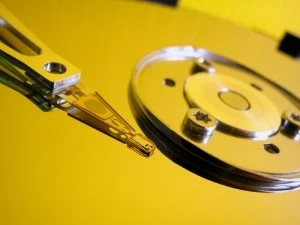Introduction
In today\'s digital era, data holds immense significance in both personal and professional spheres. Whether it encompasses crucial documents, cherished memories, or vital business data, losing such information can prove catastrophic. Fortunately, Colorado Springs boasts numerous data recovery solutions, poised to assist in retrieving lost or inaccessible data. In this extensive guide, we delve into various tips, techniques, and best practices for effective data recovery in Colorado Springs.
Understanding Data Loss
Data loss can manifest from various origins, including hardware malfunctions, accidental deletions, software glitches, or even natural calamities. Before embarking on data recovery endeavors, it\'s imperative to grasp the common triggers of data loss to forestall future occurrences.
Choosing the Right Data Recovery Service
When confronted with data loss, the foremost step entails selecting the apt data recovery service in Colorado Springs. Opt for reputable entities with a proven track record and adeptness in managing diverse data loss scenarios. Additionally, assess factors such as turnaround time, pricing, and client testimonials to make an informed choice.
Diagnostic Assessment
Upon engaging a data recovery service, a diagnostic assessment ensues to gauge the extent of data loss and determine the optimal course of action. This entails scrutinizing the affected storage device, pinpointing any physical or logical impairments impeding data accessibility.
Data Recovery Techniques:
Data recovery experts employ an array of techniques to salvage lost or inaccessible data, including:
Logical Data Recovery:
Employed in cases of accidental deletions or software glitches, logical data recovery techniques salvage data from the existing file structure.
- Physical Data Recovery: Deployed when data loss results from hardware malfunctions or physical damage, physical data recovery methods entail repairing or replacing damaged components to retrieve data.
- Remote Data Recovery: In certain scenarios, data recovery can be executed remotely, obviating the need for physical access to the storage device. This approach proves particularly beneficial for minor data loss incidents or instances where onsite intervention isn\'t feasible.
Best Practices for Data Recovery: To augment the likelihood of successful data recovery and avert future data loss, adherence to these best practices is imperative:
- Regular Data Backups: Implement a structured data backup regimen to generate duplicates of critical files and documents. Store backups across multiple platforms, encompassing cloud storage services and external hard drives, to ensure redundancy.
- Avoid Data Overwriting: In the event of data loss, abstain from utilizing the affected storage device to prevent inadvertent overwriting of existing data, which could impede the recovery process.
- Seek Professional Assistance: If confronted with data loss surpassing personal expertise, enlist the aid of professional data recovery services in Colorado Springs. Endeavoring DIY recovery methodologies may exacerbate data damage, diminishing the prospects of successful recovery.
Conclusion
While data loss may occur abruptly, equipped with requisite knowledge and resources, effective data recovery is attainable. By comprehending the triggers of data loss, opting for suitable data recovery services, and adhering to best practices, individuals and enterprises in Colorado Springs can mitigate the repercussions of data loss and safeguard invaluable information. Remember, in the realm of data recovery, knowledge equates to empowerment.



